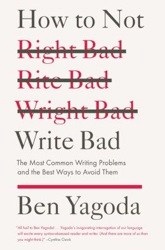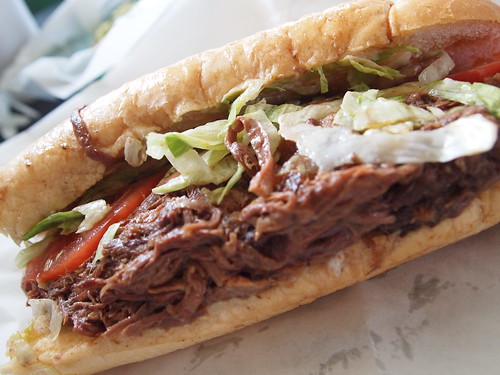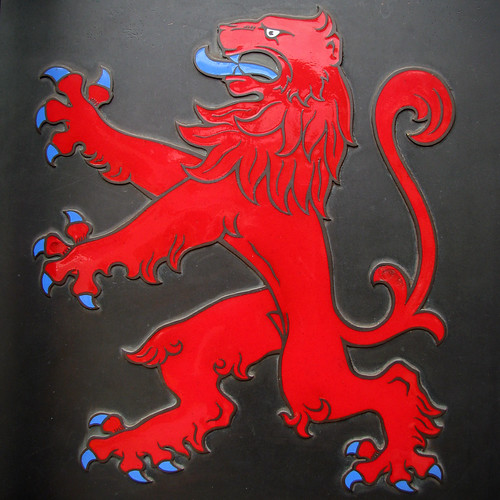
If you’re like us, you’ve been closely following the trials and tribulations of the Granthams and those who serve them. Like last season, Ben Zimmer and Ben Schmidt have been busy catching the anachronisms. Zimmer recently noticed a doozy – steep learning curve – while Schmidt found such out-of-place terms as ritual humiliation and shenanigans.
We’ve also been collecting words and phrases from the show, some perfectly ordinary, others more unusual, and all with interesting stories about how they came to be.
Spoilers may follow.
UPDATE: Two terms from the season finale have been included. See cock-a-hoop and chippy gippy tummy. Thanks to everyone who let us know it was gippy and not chippy!
blimey
Sybil: “Mary, you know what I said about the baby being Catholic. I’ve just realized the christening will have to be here, at Downton.”
Mary: “Blimey.”
Episode 4, January 27, 2013
Blimey is a British expression many of us are familiar with. It’s used to express anger, surprise, excitement, etc., and originated around 1889 as a corruption of “(God) blind me,” says the Online Etymology Dictionary. Gorblimey is another variant.
Chu Chin Chow
Mrs. Hughes: “Then your dinners would be grand enough for Chu Chin Chow.”
Episode 6, February 3, 2013
Chu Chin Chow is a musical comedy based on Ali Baba and the 40 Thieves in which “the wealthy merchant Kasim Baba (brother of Ali Baba) [gives] a lavish banquet for a wealthy Chinese merchant, Chu Chin Chow, who is on his way from China.” The show premiered in London in 1916 and ran for five years.
cock-a-hoop
Hugh: “Nield is cock-a-hoop.”
Episode 8, February 17, 2013
Cock-a-hoop means “exultant; jubilant; triumphant; on the high horse,” as well as “tipsy; slightly intoxicated.” The term comes from the phrase “to set cock on hoop,” which literally means “to turn on the tap and let the liquor flow,” according to the Oxford English Dictionary (OED), and figuratively, “to drink festively.”
Cock in this context refers to “a faucet or valve by which the flow of a liquid or gas can be regulated,” while a hoop is “a certain quantity of drink, up to the first hoop on a quart pot.”
Debrett’s
Cora: “Not everyone chooses their religion to satisfy Debrett’s.”
Episode 5, February 3, 2013
Debrett’s is a British publisher of etiquette guides and Debrett’s Peerage & Baronetage, a “genealogical guide to the British aristocracy,” or as Patsy Stone of the TV show Absolutely Fabulous calls it, the “Who’s Who in what’s left of the British aristocracy.”
gippy tummy
O’Brien: “Something different. I could fancy that.”
Wilkins: “Not me. All sweat and gippy tummy.”
Episode 8, February 17, 2013
A gippy tummy is, according to the OED, “diarrhœa suffered by visitors to hot countries,” where gippy is slang for Egyptian. Gippy tummy may also be an anachronism: the OED lists the earliest use of the term as 1943, 23 years after this episode takes place.
hobbledehoy
Carson: “Miss O’Brien, we are about to host a society wedding. I have no time for training young hobbledehoys.”
Episode 1, January 6, 2013
A hobbledehoy is “a raw, awkward youth.” The word is very old, originating in the 16th century. The first syllable hob probably refers to “a hobgoblin, sprite, or elf,” while –dehoy may come from the Middle French de haye, “worthless, untamed, wild.”
in someone’s bad books
Daisy [to Mosely about O’Brien]: “I wouldn’t be in her bad books for a gold clock.”
Episode 2, January 13, 2013
To be in someone’s bad books means to be in disgrace or out of favor. The phrase originated around 1861, says the Oxford English Dictionary (OED).
An earlier phrase (1771) is to be in someone’s black book. A black book was “a book kept for the purpose of registering the names of persons liable to censure or punishment, as in the English universities, or the English armies.” So to be in someone’s black book meant to be in bad favor with that person (or on their shitlist, as we Yanks say).
As you may have guessed, to be in someone’s good books means to be in favor. That phrase originated around 1839, says the OED, in Charles Dickens’s Nicholas Nickleby: “If you want to keep in the good books in that quarter, you had better not call her the old lady.”
in the soup
Daisy [to Mosely]: “You’re in the soup.”
Episode 2, January 13, 2013
To in the soup means to be in in a difficult, according to the OED. The phrase was originally American slang, originating around 1889.
Johnny Foreigner
Robert: “But there always seems to be something of Johnny Foreigner about the Catholics.”
Episode 3, January 20, 2013
Johnny Foreigner is a derogatory term for “a person from a country other than those which make up the United Kingdom.” We couldn’t find an originating date or first use of the phrase. If anyone has information, let us know!
left-footer
Robert: “Did you hear Tom’s announcement at breakfast? He wants the child to be a left-footer.”
Episode 6, February 3, 2013
Anachronism alert! Left-footer, which is slang for a Roman Catholic, didn’t come about until 1944, according to the OED, 24 years after this episode takes place.
The term seems to come from the belief that “in the North of Ireland that Catholic farm workers use their left foot to push the spade when digging, and Protestants the right.” Kicks with the left foot is another slang term for Catholic, while kicking with the wrong foot “is used especially by Protestants of Catholics and vice versa.”
plain cook
Mrs. Bird: “She says there’s plenty of work for a plain cook these days.”
Episode 4, January 27, 2013
A plain cook, says the OED, is “a cook who specializes in, or most frequently prepares, plain dishes.” Plain dishes are “not rich or highly seasoned,” and have a few basic ingredients.
rich as Croesus
Mary: “He’s as rich as Croesus as it is.”
Episode 1, January 6, 2013
Croesus was, in ancient Greece, the last king of Lydia “whose kingdom, which had prospered during his reign, fell to the Persians under Cyrus.” Croesus came to refer to any rich man by the late 14th century.
squiffy
Robert: “I’m very much afraid to say he was a bit squiffy, weren’t you, Alfred?”
Episode 6, February 3, 2013
Squiffy means tipsy or drunk, and is of “fanciful formation,” according to the OED. Other ways to say drunk.
stick it up your jumper
Anna: “They’ll have to give Thomas his notice.”
Bates: “Mr. Barrow.”
Anna: “Mr. Stick It Up Your Jumper.”
Episode 6, February 10, 2013
The full phrase is oompah, oompah, stick it up your jumper!, and is “an expression of contempt, defiance, rejection or dismissal.” It may have originally been “a meaningless jingle chanted jocularly or derisively” from the 1920s. The phrase makes a famous appearance in the Beatles’ song, I Am the Walrus.
tuppence
Isabel: “She couldn’t give a tuppence about Ethel.”
Episode 6, February 10, 2013
Tuppence is an alternation of twopence, two pennies or a very small amount. One who doesn’t give a tuppence doesn’t care at all.
Can’t get enough Downton Abbey? Check out our favorite words from the first two seasons.
[Photo: Carnival Films via The Chicago Maroon]




